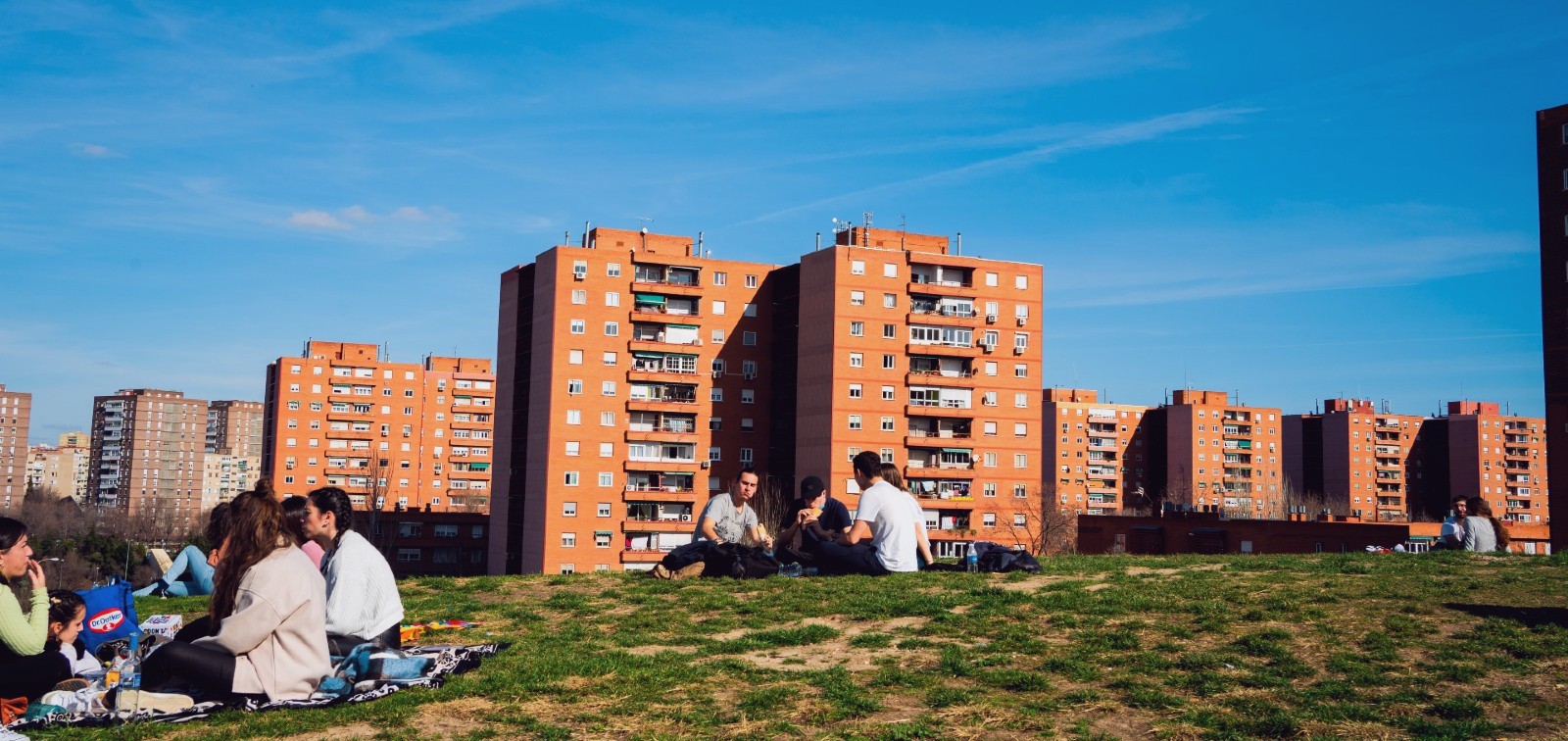A First Report by the World Meteorological Organization Finds No Solid Evidence of Meteorological or Air Quality Impact on SARS-CoV-2 Transmission
Although transmission may become seasonal over time, the WMO cautions that the onset of higher temperatures in the northern hemisphere spring should not be used as a trigger to relax measures
18.03.2021
The World Meteorological Organization (WMO) has issued its first report on Meteorological and Air Quality factors affecting the COVID-19 pandemic. The document has been produced by a 16-member panel of experts in earth and medical sciences and public health, including Xavier Rodó, head of the Climate and Health Programme at the Barcelona Institute for Global Health (ISGlobal), a centre supported by the ”la Caixa” Foundation. The United Nations System’s authoritative voice on Weather, Climate and Water report cautions that weather and climate conditions, including the onset of higher temperatures in the northern hemisphere spring, should not be used as a trigger to relax measures to halt the spread of the virus.
“Epidemiological studies of COVID-19 have, to date, offered mixed results regarding the meteorological sensitivity of the virus and the disease,” says Rodó.
COVID-19 transmission dynamics in 2020 and early 2021 appear to have been influenced primarily by government interventions such as mask mandates and travel restrictions rather than meteorological factors, according to the WMO Task Team. Other relevant drivers include changes in human behavior and demographics of affected populations, and more recently, virus mutations.
“At this stage, evidence does not support the use of meteorological and air quality factors as a basis for governments to relax their interventions aimed at reducing transmission,” said Task Team Co-chair, Dr Ben Zaitchik, Department of Earth & Planetary Sciences, Johns Hopkins University, Baltimore, USA. “We saw waves of infection rise in warm seasons and warm regions in the first year of the pandemic, and there is no evidence that this couldn’t happen again in the coming year.”
The Task Team report provides a summary of key findings published by the first week of January 2021. It therefore does not include peer-reviewed literature regarding the influence of meteorological and air quality factors on transmission of the new strains of the COVID-19 virus, or on severity of infections caused by these new strains.
The report looks at the potential role of seasonality. Respiratory viral infections frequently show some form of seasonality, in particular the autumn-winter peak for influenza and cold-causing coronaviruses in temperate climates. “This has fueled expectations that, if it persists for many years, COVID-19 will prove to be a strongly seasonal disease,” says Rodó.
“The underlying mechanisms that drive seasonality of respiratory viral infections are not yet well understood. A combination of direct impacts on virus survival, impacts on human resistance to infection, and indirect influence of weather and season via changes in human behavior may be at work,” says the report’s executive summary.
“Laboratory studies of SARS-CoV-2, the virus that causes COVID-19, have yielded some evidence that the virus survives longer under cold, dry, and low ultraviolet radiation conditions. However, these studies have not yet indicated if direct meteorological influences on the virus have a meaningful influence on transmission rates under real world conditions,” according to the executive summary.
Evidence on the influence of air quality factors is still inconclusive. There is some preliminary evidence that poor air quality increases COVID-19 mortality rates, but not that pollution directly impacts airborne transmission of SARS-CoV-2, the virus that causes COVID-19, according to the Task Team.
Examples of proposed mechanisms through which Meteorological and Air Quality factors influence respiratory viral infections.
The report focuses on outdoor meteorology and air quality conditions and does not address details of indoor air circulation.
The interdisciplinary and international Task Team was established by WMO’s Research Board in order to provide a rapid summary of the state of knowledge regarding potential meteorological and air quality influences on COVID-19 dynamics, given the staggering number of papers and pre-prints currently available.
Future work of the Task Team will include the update of the scientific evidence over the next months, the identification and promotion of a structured set of priority research questions, objectives and priorities for research investment in the areas of the pandemics – weather – climate-air quality nexus.
The Task Team will also advise and inform on good practices and minimum standards for methods for integrated infectious disease modelling considering environmental determinants, and recommend on how the coronavirus, climate, weather and air quality nexus should be factored in to research and information delivery in future WMO activities.
Task Team Members:
Rosa Barciela, UK Met Office, Exeter, United Kingdom
Emily YY Chan, The Jockey Club School of Public Health and Primary Care, Hong Kong, People's Republic of China
David Farrell, Caribbean Institute for Meteorology and Hydrology, Bridgetown, Barbados
Yun Gao, Chinese Academy of Meteorological Science, China Meteorological Agency, Beijing, People's Republic of China
Ken Takahashi Guevara, National Meteorology and Hydrology Service of Peru (SENAMHI), Lima, Peru
Sophie Gumy, Department of Environment, Climate Change and Health, World Health Organization, Geneva, Switzerland
Masahiro Hashizume, Graduate School of Medicine, University of Tokyo, Tokyo, Japan
Rachel Lowe, London School of Hygiene and Tropical Medicine, London, United Kingdom
Nick H. Ogden, Public Health Agency of Canada, Guelph, Ontario, Canada
Judy Omumbo, African Academy of Sciences, Nairobi, Kenya
Vincent-Henri Peuch, Director of the Copernicus Atmosphere Monitoring Service (CAMS) and Deputy Director of the Copernicus Department at ECMWF
Xavier Rodó, Barcelona Institute for Global Health (ISGlobal), Spain .
Paulo Saldiva, University of Sao Paulo, Faculty of Medicine (FMUSP), Sao Paulo, Brazil
Juli Trtanj, NOAA Climate Programme Office, Washington DC, USA
Ben Zaitchik, Johns Hopkins University, Baltimore, MD, USA
Tong Zhu, College of Environmental Sciences and Engineering, Peking University, Beijing, People's Republic of China
Reference
First Report of the WMO COVID-19 Task Team: Review on Meteorological and Air Quality Factors Affecting the COVID-19 Pandemic (WMO-No. 1262). World Meteorological Organization (WMO). 2021.



